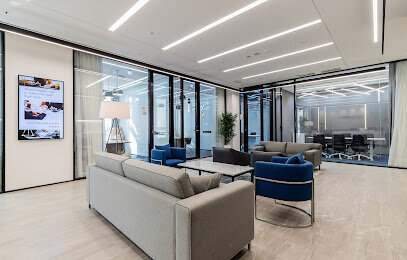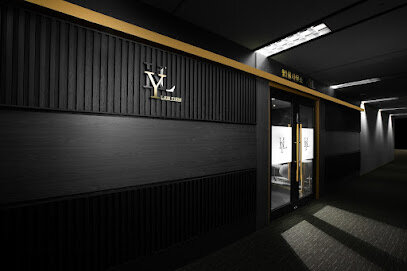Best General Litigation Lawyers in South Korea
Share your needs with us, get contacted by law firms.
Free. Takes 2 min.
Or refine your search by selecting a city:
List of the best lawyers in South Korea
About Litigation Law in South Korea
Litigation in South Korea involves the process of resolving disputes in the court system, encompassing civil, criminal, administrative, and other legal issues. The South Korean legal system is based on a civil law framework influenced by German, French, and American legal traditions. It has become increasingly important in recent years due to the growing complexity of commercial and personal disputes. Civil litigation involves resolving disputes from personal or business conflicts, while criminal litigation addresses violations of the criminal code.
Why You May Need a Lawyer
There are numerous situations where individuals or businesses may require legal help in litigation:
- Contract Disputes: Whether a disagreement arises from terms and conditions or non-fulfillment of contractual obligations, legal guidance can facilitate resolution.
- Employment Issues: Disputes between employers and employees related to wrongful termination, harassment, or wage issues often require legal intervention.
- Intellectual Property Claims: Infringements or disputes over trademarks, patents, or copyrights.
- Family Law Matters: Such as divorce proceedings, child custody, or support issues.
- Criminal Charges or Allegations: Individuals facing criminal charges need legal representation for defense and fair trial procedures.
- Real Estate Disputes: Legal issues related to property ownership, lease agreements, or construction contracts.
Local Laws Overview
When engaging in litigation in South Korea, there are several key legal aspects to consider:
- Civil Procedure Act: Governs non-criminal legal proceedings in South Korea, providing guidelines on the conduct of trials, submission of evidence, and rights to appeal.
- Criminal Procedure Act: Regulates the process for criminal cases, detailing investigation, prosecution, trial, and judgment protocols.
- Statute of Limitations: The period within which legal action must be initiated varies by case type; for most civil cases, the limitation is usually 10 years, while shorter periods apply to specific disputes like torts or contracts.
- Court Hierarchy: Consists of District Courts, High Courts, and the Supreme Court, with cases initially handled at the district level.
- Arbitration and Mediation: Alternative dispute resolution methods are commonly encouraged to avoid lengthy trial processes.
Frequently Asked Questions
1. What are the legal fees for hiring a litigation lawyer?
Legal fees can vary greatly depending on case complexity, law firm reputation, and the experience of the attorney. Usually, fees are based on an hourly rate or a flat fee arrangement.
2. Can I represent myself in court?
While self-representation is possible, it is generally not advisable given the complexities involved in legal proceedings and the potential for adversely affecting your case outcome.
3. How long does it take for a lawsuit to be resolved?
The timeframe can vary from several months to years depending on the case's nature, complexity, and the court's schedule.
4. What is the process of filing a lawsuit in South Korea?
The process involves filing a complaint with the appropriate district court, serving the complaint to the defendant, and proceeding through pre-trial motions, discovery, and trial if necessary.
5. Are there alternatives to litigation?
Yes, parties often seek resolution through arbitration or mediation to avoid protracted court cases and legal expenses.
6. What should I do if I receive a court summons?
It is crucial to respond promptly and seek legal counsel to understand your rights, obligations, and possible defenses.
7. Can foreign nationals engage in litigation in South Korea?
Yes, foreign nationals can engage in litigation, but it is advisable to work with local legal professionals to navigate the legal process effectively.
8. What happens if I lose a lawsuit?
If you lose, you may need to comply with the court's ruling, which could include paying damages. You might also have the right to appeal the decision to a higher court.
9. How is evidence presented in court?
Evidence is presented following the rules of civil or criminal procedure, typically through documents, witness testimonies, and expert opinions.
10. Can I settle a case out of court?
Yes, settlements are encouraged and can be reached at any stage of the litigation process, often resulting in reduced legal costs and expedited resolution.
Additional Resources
For further assistance and information, consider the following resources:
- Korean Bar Association: Provides resources and referrals for finding qualified litigation attorneys.
- Ministry of Justice: Offers guidelines on legal procedures and access to legal aid services.
- Korea Legal Aid Corporation (KLAC): Offers support and legal services for those unable to afford representation.
Next Steps
If you require legal assistance in litigation, begin by identifying the specific nature of your legal issue. Consult with a qualified attorney who specializes in the relevant field of law. Prepare all necessary documentation and evidence related to your case, and be prepared for initial consultations where you will discuss potential legal strategies and fee arrangements. Prioritize finding a lawyer who not only has the expertise but also communicates well and understands your goals.
Lawzana helps you find the best lawyers and law firms in South Korea through a curated and pre-screened list of qualified legal professionals. Our platform offers rankings and detailed profiles of attorneys and law firms, allowing you to compare based on practice areas, including General Litigation, experience, and client feedback.
Each profile includes a description of the firm's areas of practice, client reviews, team members and partners, year of establishment, spoken languages, office locations, contact information, social media presence, and any published articles or resources. Most firms on our platform speak English and are experienced in both local and international legal matters.
Get a quote from top-rated law firms in South Korea — quickly, securely, and without unnecessary hassle.
Disclaimer:
The information provided on this page is for general informational purposes only and does not constitute legal advice. While we strive to ensure the accuracy and relevance of the content, legal information may change over time, and interpretations of the law can vary. You should always consult with a qualified legal professional for advice specific to your situation.
We disclaim all liability for actions taken or not taken based on the content of this page. If you believe any information is incorrect or outdated, please contact us, and we will review and update it where appropriate.
Browse general litigation law firms by city in South Korea
Refine your search by selecting a city.
















